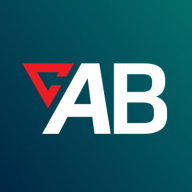

Appian and ActiveBatch are significant players in the enterprise software space, focusing on low-code development and automation, respectively. Appian's low-code platform shows an advantage with strong process modeling, while ActiveBatch excels in workflow visibility and integration flexibility.
Features: Appian stands out for its robust low-code capabilities, comprehensive process modeling, and integration features. It supports BPM, RPA, AI, and document processing, allowing rapid application development. ActiveBatch is known for comprehensive automation and end-to-end workflow visibility. It provides pre-built job steps, strong integration features, and a user-friendly automation hub, making it ideal for complex scheduling tasks.
Room for Improvement: Appian could improve by enhancing UI flexibility, offline functionalities, and DevOps integrations. Users face challenges in customizing forms without programming expertise and desire better documentation and error handling. ActiveBatch's user interface is complex, needing a more beginner-friendly design. Event-based triggers can be unreliable, and improvements in documentation examples and non-Windows support are desired.
Ease of Deployment and Customer Service: Appian offers public and hybrid cloud solutions, facilitating easy deployment, particularly for cloud options. Its customer service is generally excellent, though sometimes slow on complex issues. ActiveBatch, primarily on-premises, provides an easy setup with cloud capabilities. Its customer service requires more proactive engagement, especially for intricate issues.
Pricing and ROI: Appian's competitive pricing can be higher than other low-code platforms but offers significant ROI through development and deployment efficiencies. It's cost-effective for large enterprises but pricey for smaller businesses. ActiveBatch offers good value with competitive automation market pricing, supporting cost-saving through reduced manual tasks. It provides reasonable licensing and a potential transition to a subscription model, recognized for process optimization and cost management, despite higher costs.
We require fewer team members to handle operations due to its robust automation.
Using Appian is saving us five full-time employees, which is significant since we currently have only four team members.
They see return on investment in terms of cost savings, time savings, more efficient processes, and more efficient employees.
Appian is very efficient, allowing us to build a lot of applications within a financial year, making it cost-effective.
We often need to escalate issues to level two or three for solutions related to long-standing problems.
I would give Appian's customer support 10 out of 10 due to their next-level support.
Their customer service is responsive, and the team is very prompt for support.
The technical support for Appian rates as 10 out of 10 because they have a great support team.
ActiveBatch by Redwood's scalability is excellent; it experiences minimal failures and outages.
On a scale of one to 10, Appian rates as a nine for scalability.
Our volume has increased by 20% in the two years since using Appian, and it can handle the increased volume effectively.
Initially, without much coding, I can easily handle five thousand records.
We have tested Appian during peak usage and off-peak times, and we have not experienced any issues such as lagging or system disruptions.
It depends on how it has been designed and how it has been configured.
The stability of Appian would rate as nine, as it's a stable environment.
On the web console, users encounter daily activity issues where the job instances do not appear or update correctly, and they cannot view the latest logs.
I believe ActiveBatch by Redwood could be improved because the UI could be modernized.
It has room to improve for use cases where the users are public facing, where anonymous users could come to a site and run a business workflow or interact with some data.
Appian can be improved by adding a geo-location tagging feature, which would be really helpful for identifying remitter addresses.
If there is a very complex process that includes a lot of data transitioning and memory-centric processes, it consumes a lot of memory.
My experience with pricing, setup cost, and licensing for ActiveBatch by Redwood has been great
Appian provides value for money, is easy to use, has a straightforward setup procedure, and offers great support from the Appian team.
On the pricier side, both Appian and Pega are enterprise-level solutions, placing them on the slightly higher side.
The pricing of Appian is based on the number of users and generally ranges from 70 to 100 USD per user per month.
The addition of AI has made troubleshooting and supporting users through ActiveBatch by Redwood quicker for me.
The best feature that ActiveBatch by Redwood offers is the user interface.
The zero-code integration feature is remarkable, allowing for ease of data transfer and workflow enhancement.
Appian is aiding in leveraging AI technologies in multiple ways: one way is for developers, as they make development efficient and quick by enabling developer co-pilots across various phases of the application, which helps design Appian quickly and provides suggestions along the way.
After switching to Appian, it can extract data from MT103, eliminating the need for manual data entry.
| Product | Market Share (%) |
|---|---|
| Appian | 4.5% |
| ActiveBatch by Redwood | 1.1% |
| Other | 94.4% |

| Company Size | Count |
|---|---|
| Small Business | 11 |
| Midsize Enterprise | 13 |
| Large Enterprise | 47 |
| Company Size | Count |
|---|---|
| Small Business | 20 |
| Midsize Enterprise | 9 |
| Large Enterprise | 42 |
ActiveBatch by Redwood enhances efficiency with features like job scheduling, integration, and real-time monitoring. It supports diverse platforms, automates tasks, and offers a single-pane view with robust security.
ActiveBatch streamlines automation by offering drag-and-drop functionality, pre-built job steps, and native integrations. Its customizable workflows and alert system aid in managing complex workloads like data processing and server monitoring across hybrid environments. While it effectively reduces manual errors and enhances productivity, areas like navigation and support for cloud platforms need enhancement. New users may face challenges due to its complexity and steep learning curve, and further improvements in reporting, mobile access, and training could provide additional support to users.
What important features does ActiveBatch offer?In finance, ActiveBatch is implemented for orchestrating batch processes and data management. The healthcare industry utilizes it for automating patient data updates and server monitoring, while the retail sector benefits from file transfers and inventory management automation.
Appian is a unified low-code platform and solution used by businesses to build enterprise applications and workflows. This product adapts to the needs of clients and the technologies they are already using to combine their data in a single workflow and maximize resources. The platform has four main components through which it transforms the work process for companies of various sizes. They are:
Appian is utilized across a diverse set of industries, including automotive and manufacturing, energy and utilities, education, financial services, telecom and media, transportation, retail, insurance, healthcare, and life sciences. The most frequent use cases of Appian are customer journey, governance, risk and compliance, operational efficiency, supply chain, distributed order management, and environmental, social, and governance (ESG) management.
Appian Features
Appian has various features that allow users to create solutions for their businesses. These features can be separated into a few groups according to function, including automation, low-code application development, and integrations and data. Some of the most frequently used features of Appian include:
Appian Benefits
The benefits of using Appian include:
Reviews from Real Users
A practice leader - digital process automation at a computer software company values Appian highly because the product is easy to develop, low-code, and has a good user interface.
Alan G., an advisory board member at Codecon VR, Appian offers a clear application life cycle, easy to learn documentation, and comes with a fundamentals course.
We monitor all Process Automation reviews to prevent fraudulent reviews and keep review quality high. We do not post reviews by company employees or direct competitors. We validate each review for authenticity via cross-reference with LinkedIn, and personal follow-up with the reviewer when necessary.